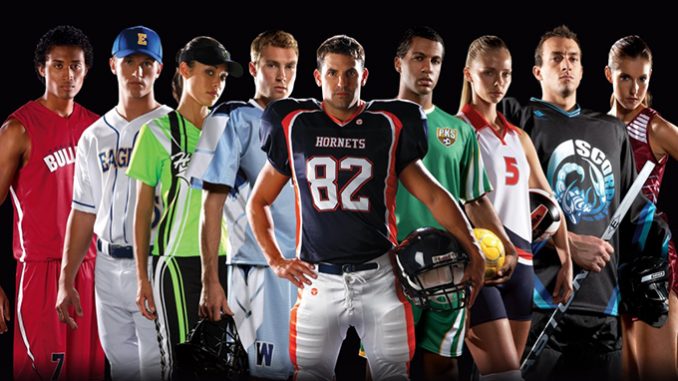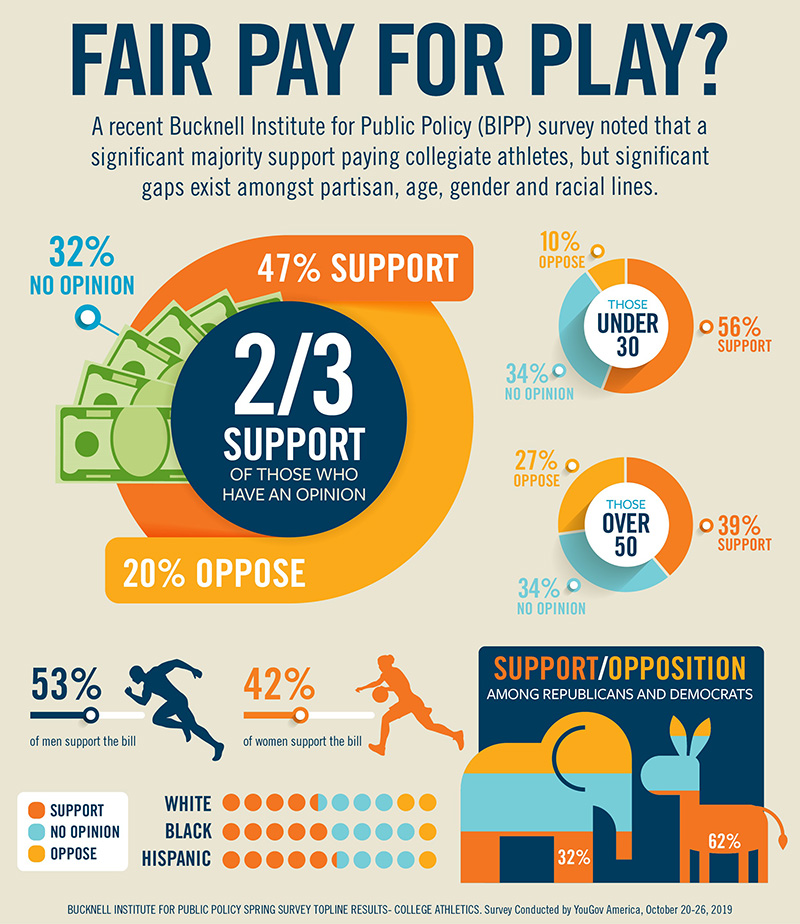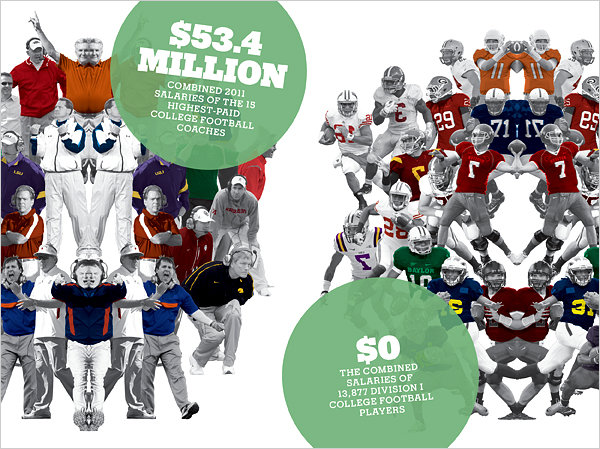
David D’Annibale, Staff Writer
The debate as to whether or not college athletes should be financially compensated for their contributions has caused much controversy over the last several years. In 2019, California became the first state to pay student-athletes, in hopes of putting an end to their exploitation. I believe that college athletes have not only the right to be paid, but the universities that sponsor them further have an obligation to compensate them. Each year these institutions stand to make billions of dollars in revenue and compensation for their core contributors is long overdue.
Paying all college athletes, will limit corruption and rule violations among coaches and players. In 2018, the FBI uncovered that the head basketball coach University of Arizona’s was discussing a $100,000 payment for a recruit to apply to the school they work for. Paying all college athletes could put an end to the bribing of recruits that occurs behind the scenes.

Many people forget that a college athlete is not guaranteed anything. Even athletic scholarships are not guaranteed. Paying college athletes would provide them each with a greater sense of financial security. Further, many college sports put players at risk for injury, especially contact sports such as football. Career ending injuries happen all the time forcing athletes to make tough decisions, one of which being how to afford to stay at college and get their degree. It’s important to keep in mind that, not all athletes will get drafted either.
The NCAA stands to profit billions of dollars in revenue each year. It’s simply wrong and immoral that players are exploited for their talent and entertainment value with offers of indefinite scholarships while institutions stand to make unbelievable amounts of money. Being a student-athlete presents several challenges as they navigate maintaining good grades and giving up a substantial amount of their free time and off-season to prepare for the upcoming competitions.
The NCAA mandates a time limit of , 20 hours per week for participation in athletics, however, on average, coaches may list activities as voluntary, but athletes expected to show up in order to remain part of the team. Perhaps, at a bare minimum, athletes participating in workouts and other activities beyond the time requirements prescribed by the NCAA could be compensated in bonuses or by other monetary means.

If universities start providing players with annual salaries, a fear many in the sports world have is that this could ultimately lower the salaries of their coaches. Top college coaches’ salaries are in the millions. Clemson University’s head football coach, Dabo Swinney earns approximately $9 million a year. If coaches are able to earn such significant sums of money, it’s time for these institutions to start compensating the players, that profit both the university and the coach, for the wages they are due. Top athletes deserve the right to make money off their names and collegiate careers in their respective sports. Star athletes help to sell tickets for games and draw larger crowds, thereby higher concession profits and so on, so why can’t they be compensated for it?
Providing college athletes with a dependable wage will hopefully instill in them greater motivation and with more ambition to stay in school, ultimately preparing them to graduate. In the NBA you are only required to play one year. Many talented athletes will enter the draft at a young age and not complete their degrees. Paying athletes could benefit future classes of college athletes.
Leave a Reply